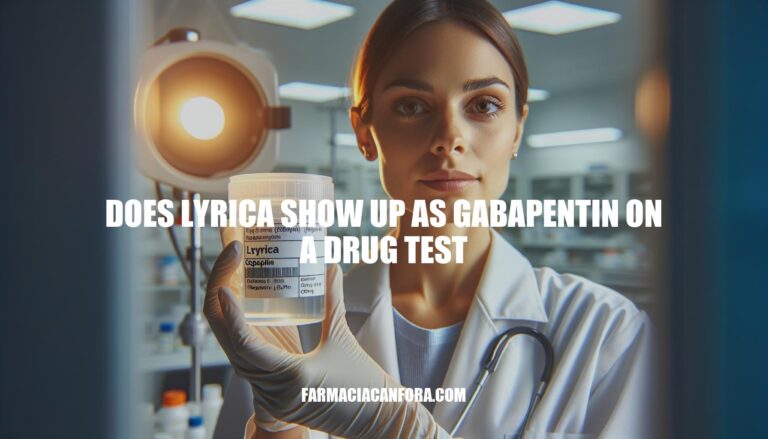


Lyrica (pregabalin) and gabapentin are both anticonvulsant medications, but they are distinct substances. When it comes to drug testing, Lyrica does not typically show up as gabapentin. Standard drug tests usually do not screen for either of these medications unless specifically requested. However, some specialized tests might detect pregabalin (Lyrica) and could potentially cause confusion if not properly identified.
Understanding this distinction is crucial for individuals undergoing drug testing, especially those who are prescribed these medications. Misidentification could lead to unnecessary concerns or complications in medical, legal, or employment contexts.
Chemical Composition:
Pregabalin (Lyrica): Its chemical formula is C₈H₁₇NO₂. It is a structural analog of the neurotransmitter GABA (gamma-aminobutyric acid) but does not bind to GABA receptors. Instead, it binds to the α2δ subunit of voltage-gated calcium channels.
Gabapentin: Its chemical formula is C₉H₁₇NO₂. Like pregabalin, it is also a GABA analog and binds to the α2δ subunit of voltage-gated calcium channels.
Differences:
Absorption and Bioavailability:
Potency and Dosage:
Side Effects:
Relevance to Drug Testing:
Detection and Differentiation: The differences in chemical structure and metabolism mean that drug tests can distinguish between pregabalin and gabapentin. This is crucial for ensuring accurate identification of the specific medication a patient is using.
Abuse Potential: Pregabalin has a higher potential for abuse due to its faster absorption and onset of action, making it more likely to be monitored in drug tests.
These differences highlight the importance of tailored drug testing protocols to accurately monitor and manage the use of these medications.
Common Drug Testing Procedures:
Substances Typically Screened:
Lyrica and Gabapentin:
Lyrica (pregabalin) can cause a false positive for gabapentin on a drug test. This is due to the structural similarity between pregabalin and gabapentin, which can lead to cross-reactivity in certain drug tests. Documented cases and studies have noted this possibility, although it is not very common.
When Lyrica (pregabalin) shows up as gabapentin on a drug test, it can have several implications for both patients and healthcare providers:
Addressing these implications requires clear communication, accurate testing methods, and a thorough understanding of the medications involved.
Lyrica (pregabalin) is a distinct substance from gabapentin, despite both being anticonvulsant medications. Standard drug tests typically do not screen for either medication unless specifically requested. However, specialized tests might detect pregabalin and could cause confusion if not properly identified.
The chemical composition of Lyrica and gabapentin differs, with Lyrica having a higher potency and faster absorption rate than gabapentin. This can lead to differences in side effects and potential for abuse.
In terms of drug testing, the distinction between Lyrica and gabapentin is crucial for accurate identification and management of medication use. Misidentification could lead to unnecessary concerns or complications in medical, legal, or employment contexts.
Lyrica does not typically show up as gabapentin on a standard drug test, but specialized tests might detect pregabalin. However, there have been documented cases where Lyrica has caused false positives for gabapentin due to structural similarity between the two medications.